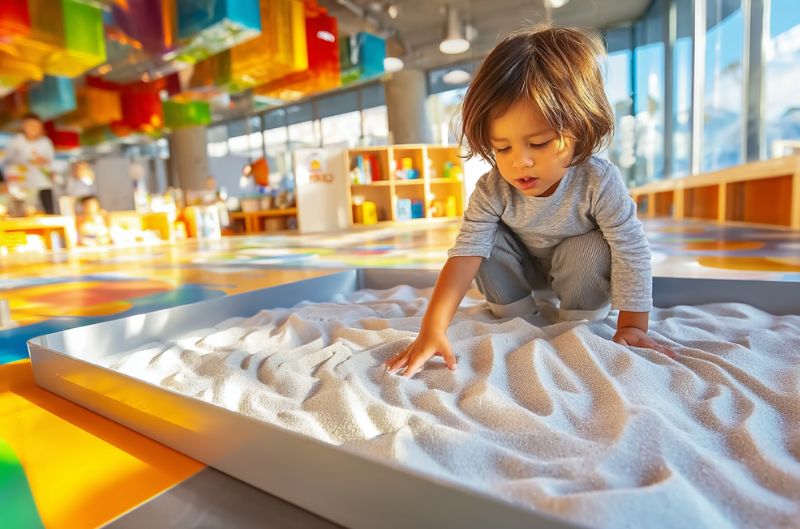
Mastery Play: Boosting Skills and Confidence in Young Kids
Author: Austin Stanfel
Mastery play, a form centered on practicing and perfecting skills, is fundamental to early childhood development. Through repetitive engagement in activities, young children acquire essential skills and build the confidence necessary to navigate their expanding world. This article explores how repetitive practice in mastery play fosters both skill development and self-assurance in young children, drawing on insights from child development research and educational practices.
The Role of Repetition in Child Development
Repetition is a cornerstone of learning in early childhood. It involves children engaging multiple times in a task or activity, allowing them to practice, internalize, and eventually master new skills or concepts. Contrary to the misconception that repetition means monotony, it encompasses a range of experiences, from reading the same story repeatedly to practicing physical movements or observing peers perform a task.
- Neural Foundations of Repetition
- Repetition Supports Mastery and Retention
Learning is a neurological process that requires the formation and strengthening of neural connections in the brain. For young children, whose brains are still developing, repetition is essential to solidify these pathways. Each repeated experience helps the brain process information more efficiently, making skills more automatic and less effortful. This neural reinforcement underpins the transition from novice attempts to confident mastery.
Children move from initial exposure to deeper understanding and retention by repeatedly engaging with a skill or concept. This process enables them to anticipate outcomes, recognize patterns, and apply knowledge in increasingly complex ways. For example, a child who repeatedly practices stacking blocks will improve fine motor skills and develop problem-solving abilities and spatial awareness.
Mastery Play: Practicing to Perfection
Mastery play is the natural context in which repetition occurs. It involves children deliberately practicing skills they are motivated to learn, such as riding a bike, throwing a ball, or mastering a new language sound. This type of play is driven by the child’s intrinsic desire to improve and gain control over their abilities.
- Building Confidence Through Mastery
- Emotional and Cognitive Benefits
Confidence arises from the feeling of competence and success. As children repeat activities and notice their progress, they develop a sense of mastery that affirms their capabilities. This confidence is critical; it encourages children to overcome new challenges and persist through difficulties. The comfort of familiarity gained through repetition reduces anxiety and creates a safe space for learning.
Mastery play enhances physical and cognitive skills and supports emotional development. Repetitive practice teaches children self-discipline, critical reflection, and resilience. It helps them manage frustration and understand that mistakes are part of learning. This emotional stability is foundational for healthy social interactions and lifelong learning.
Practical Ways to Support Mastery Play, and Repetition
Parents, caregivers, and educators play vital roles in facilitating mastery play and encouraging repetition in engaging and developmentally appropriate ways.
- Provide Opportunities for Repetition
- Use Multi-Sensory and Varied Approaches
- Scaffold Learning
- Encourage Self-Reflection
- Balance Repetition with Exploration
Allow children ample time to engage with activities they enjoy without rushing them to move on. Repeated exposure helps solidify learning, whether reading a favorite book multiple times or practicing a physical skill.
Incorporate different senses and methods to reinforce learning. Asking questions about what something looks, sounds, or feels like can deepen understanding and make repetition more meaningful.
Offer guidance tailored to the child’s developmental level, gradually reducing support as the child gains confidence. Demonstrations, encouragement, and open-ended questions help children reflect on their progress and build independence.
Help children articulate what they have learned and enjoy about an activity. This reflection reinforces learning and promotes a growth mindset where effort and persistence are valued.
While repetition builds mastery, introducing new challenges keeps learning dynamic and prevents boredom. Encouraging curiosity alongside practice nurtures a love of discovery and continuous growth.
The Broader Impact of Mastery Play
Mastery play contributes to holistic development, including physical coordination, language acquisition, social skills, and emotional intelligence. Through repeated practice in play, children learn to negotiate, share, solve problems, and express themselves creatively. These experiences lay the groundwork for academic success and personal well-being.
Conclusion
Repetitive practice through mastery play is a powerful engine for building skills and confidence in young children. It strengthens brain connections, fosters emotional resilience, and cultivates a positive self-image. By supporting children’s natural inclination to repeat and master activities, adults can help them develop the competence and confidence needed to thrive in all areas of life. Embracing repetition as a vital part of early learning ensures that children acquire skills and gain the assurance to face future challenges with enthusiasm and resilience.

